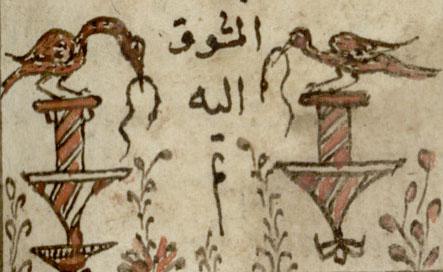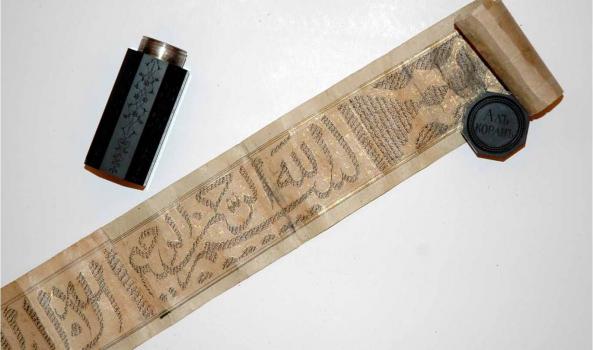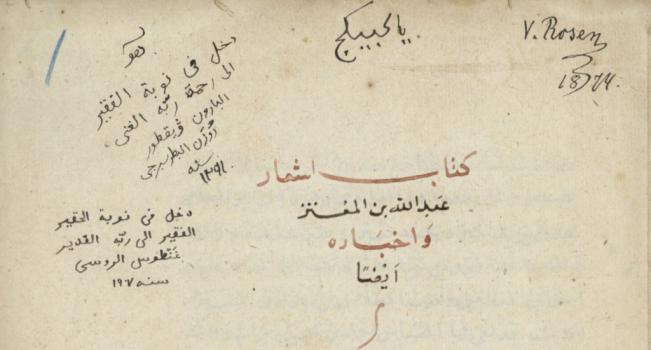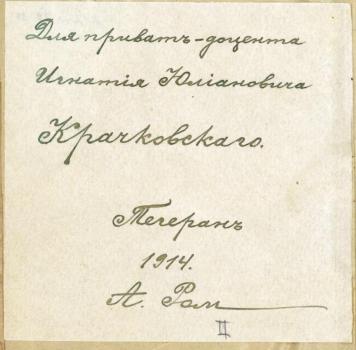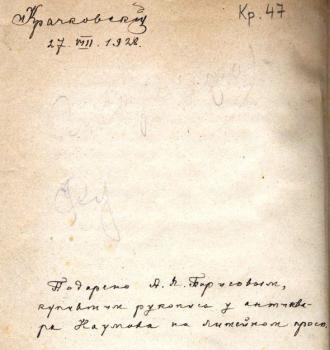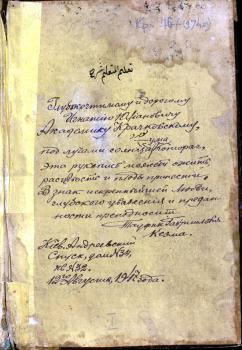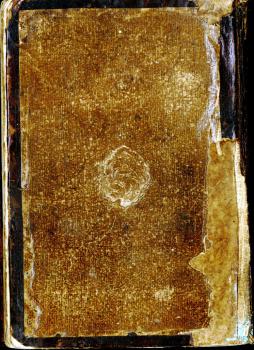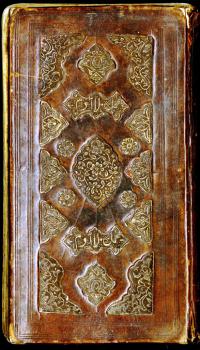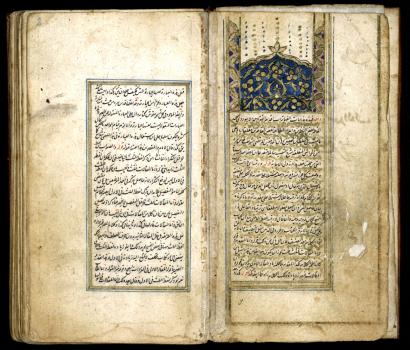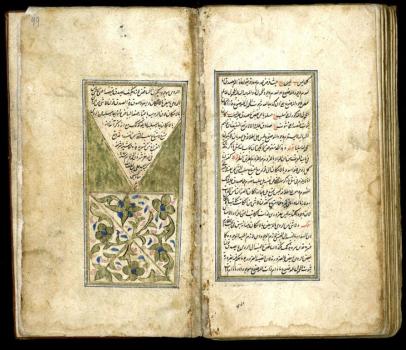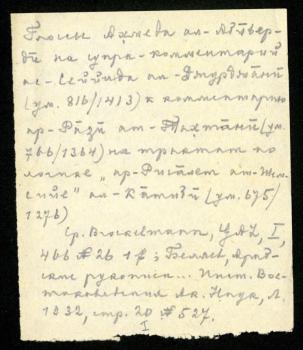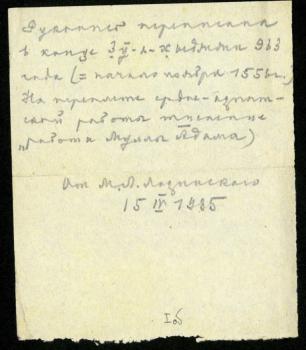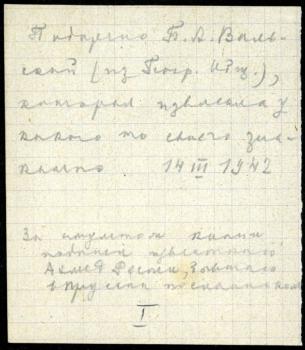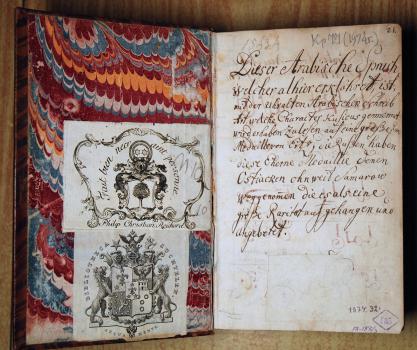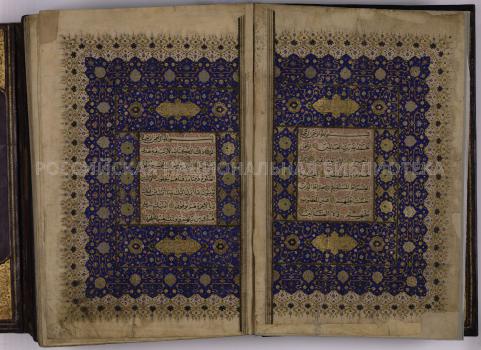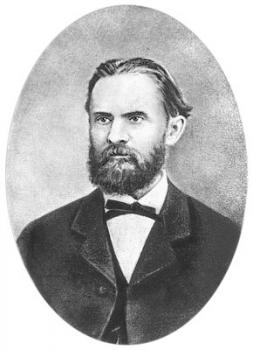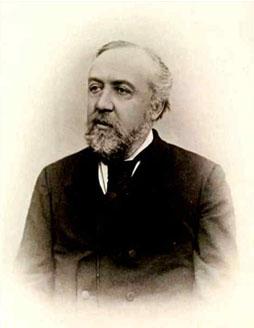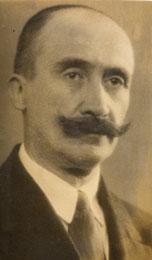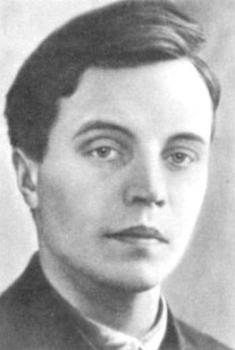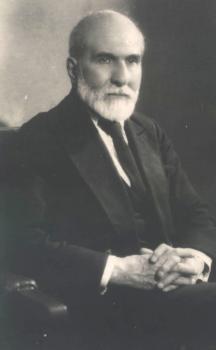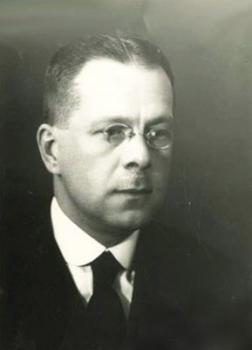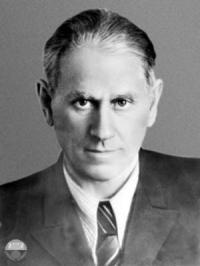Academician-Arabist Ignaty Krachkovsky: his Collection of Oriental Manuscripts in the National Library of Russia
O. V. Vasilyeva
Sources of the Manuscript Collection of I. Yu. Krachkovsky
We are aware of the names of the owners, donors or sources of only 37 manuscripts out of 80, and in some cases the time of acquisition is also known. The most mysterious is the appearance in the Krachkovsky collection of a miniature talismanic Quran in scroll form, which, judging by a number of signs, once belonged to the mining engineer, head of factories in the Altay region, Pyotr Frolov (1775–1839) (Кр. 80).
In three cases, we can speak with confidence about the former owners, Arabists, departed to the other world long before Ignaty Krachkovsky became an orientalist. Mikhail Navrotsky (1823–1871), an Arabist, professor at St. Petersburg University, owned two mid-19th century lithographed Kazan “posters” - šamails containing a hadith ("discourse") about the individual features of the Prophet Muhammad and supplemented by Navrotsky’s notes (Кр. 52–53).
Also, an Arabist, who later, after Navrotsky, became a professor at St. Petersburg University, Vladimir Girgas (1835—1887) was on a study tour to Syria and Egypt from 1861 to 1864, during which he wrote down Arabic proverbs and sayings in the Syrian dialect. His autograph is in the collection (Кр. 51).
Kitāb Al-Awrāq “The Book of Leaves” – a work by al-Suli on the history of the Abbasids with stories about Abdallah ibn al-Mutazz and Ibrahim al-Mahdi, dated 16 Ramadan 1144 / 12 March 1732 (Кр. 29), belonged to Krachkovsky’s teacher, Academician Viktor von Rosen (1849–1908); next to his inscription of 1874 there is an Arab ownership mark dating 1907 with Krachkovsky's signature – Gantus al-Rus.Only in five cases there are dated notes by Krachkovsky, indicating that he himself acquired the manuscript. On a loose leaf with an annotation to a literary miscellany of the early 19th century. (Kr. 18), he wrote, “Acquired in St. Petersburg, Dec. 1906,” perhaps it was this book that marked the beginning of Krachkovsky’s collection. Four small polemical treatises against Judaism were purchased by Krachkovsky in 1910 in Beirut (Кр. 42-45).
One copy was ordered by Krachkovsky in Istanbul in 1927 (Кр. 49). Five 19th century Central Asian manuscripts contain pencil notes by an antiquarian bookseller, with a price of 10 rubles (Кр. 58, 60, 62, 64 and 68), dated October 1931. The same date, but with a price of 15 rubles, is found on one more book (Кр. 61), and on one essay there is only a price (10 rubles) written in a different hand (Кр. 59). It can be concluded that in 1931 Krachkovsky bought at least six manuscripts.
The sources and sometimes the year of acquisition are given in Krachkovsky's notes or in dedicatory inscriptions on 21 manuscripts. In 1812–1814, the historian – Iranist Alexander Romaskevich (1885–1942), who was on a business trip in Iran, sent 9 handwritten books from Tehran, Isfahan and Shiraz (Кр. 4, 7–9, 13–15, 26, 30). Another one – the oldest in the collection, dating 1486, came from him in 1926 (Кр. 16).In the same year, the Algerian philologist, teacher of Arabic at the Paris School of Living Oriental Languages, Ahmad Ibn Hammud, sent his commentary on the “play” of the poet Dhu al-Rumma (696–735) (Кр. 22).
The draft autograph of the Travel to Russia (Descriptions of Russia) (Кр. 47) by Sheikh al-Tantawi (1810–1861), who came to St. Petersburg to teach Arabic, was presented to Krachkovsky in August 1928 by his student, a semitologist Andrei Borisov (1903–1942), who bought the manuscript from the antique dealer Naumov on Liteiny Prospekt. This is the only case when Krachkovsky published his memories of an unexpected acquisition, "of course, my young friend knew well what a precious treasure he brought me… By looking at the binding, I immediately understood where the manuscript came from to a random second-hand book dealer: Latin letters ”I. N." were embossed there – the initials of Irenaeus Nofal, an Arab from Tripoli, Tantawi's successor in teaching at the Educational Department of Oriental Languages of the Ministry of Foreign Affairs. His library fell into ruins at the beginning of the 20th century…"The Kiev Arabist Taufik Kezma (1882–1858) donated one book each in 1934 and 1947. The first one contains an inscription written in faded green ink, "To the deeply revered, dear and beloved Ignaty Yulianovich Krachkovsky from a native of Damascus, living in Kyiv, loving and devoted with all his heart, Taufik Gavriilovich Kezma. Kyiv, March 1, 1934."(Кр. 1). The inscription on the second book reads, “To the deeply revered and dear Academician Ignaty Yulianovich Krachkovsky, in the rays of the sun…of whose mind this manuscript can come to life, blossom and bear fruit. Taufik Gavriilovich Kezma presented as a sign of sincere love, deep respect and devotion. Kyiv, Andreevsky Spusk, building No. 34, apt. No. 32. August 12, 1947". (Кр. 76).
In 1935, the manuscript dating 1556 (Кр. 3) was donated by the Public Library employee, poet and translator Mikhail Lozinsky (1886–1955), with whom Krachkovsky was well acquainted, since they worked together in the translation section of the World Literature publishing house.
Krachkovsky wrote about one acquisition during the siege of Leningrad on a piece of paper inserted into a copy of the Psalms in Yiddish (Кр. 77), which was once part of the collection of General Pieter van Suchtelen and then kept at Kazan University, "Donated by B.A. Valskaya (from the Geographical Society) which she took from some friend of hers. 4.III.1942". How and when this book disappeared from the Kazan part of Suchtelen’s collection and how it got to a friend of Bluma Valskaya (1914–2002) remains unknown.
Among the undated acquisitions there are “Magribin leaves from the collection sold by A. M. Moskalev to the Asian Museum” (Кр. 25) and “Manuscript leaves from Bukhara, given by A. Yu. Yakubovsky” (Кр. 24). An undated dedicatory inscription in the Tatar language and the seal of Mullah Mustafa Ilyasov are found on an 18th century Quran (Кр. 23).
After the death of her husband, Vera Krachkovskaya added at least one manuscript to his collection. The Quran, copied in Medina in 982/1574 (Кр. 50), was bought by her from the biophysicist Sergei Chakhotin (1883–1973), a "defector" who returned to the USSR in 1958. Sergei Chakhotin was a son of Stepan Chakhotin (1857–1919), a dragoman in Istanbul and, from 1895 to 1915, a Russian consul in the Serbian city of Nish.
